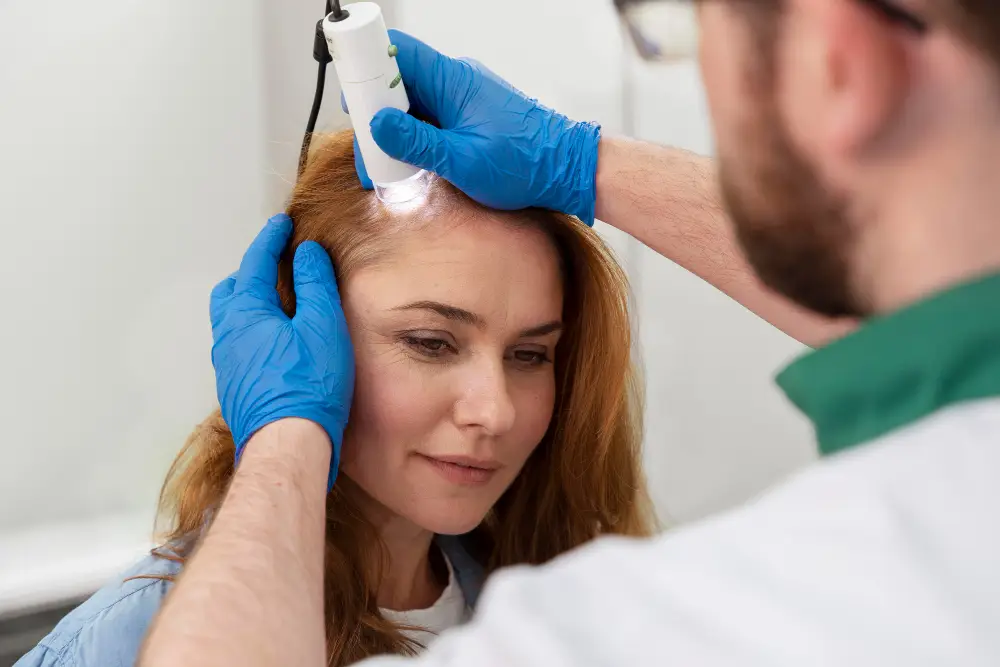
Understanding Cord Blood Stem Cell Treatment: A Patient’s Guide to Regenerative Pathways
Key Takeaways: Navigating Your Options
- Cord blood stem cells contain hematopoietic stem cells, which are well-established for treating specific blood and immune system disorders.
- Applications for other conditions are generally considered investigational, emphasizing the importance of seeking care within ethical and scientifically rigorous frameworks.
- Colombia, and specifically Pereira, offers modern medical facilities and a robust regulatory environment overseen by entities like the Colombian Ministry of Health and INVIMA.
- The patient journey is simplified through dedicated advocacy, focusing on clear communication, logistical support, and a holistic care environment.
- Understanding the science, regulatory landscape, and logistical support available is key to making an informed decision about advanced regenerative pathways.
This guide delves into the world of cord blood stem cell treatment, exploring its scientific basis, current applications, and the distinct advantages of considering regenerative pathways available through facilities in Pereira, Colombia. Our focus is on ethical education, patient empowerment, and transparently presenting verifiable facts to help you understand your options without sensationalism or unverified claims. We believe that informed patients are empowered patients.
Table of Contents
- Introduction
- The Stakes & Critical Implications of Cord Blood Stem Cell Treatment
- The Conventional Approach to Care in Colombia
- The Pereira, Colombia Advantage: A Holistic Approach to Regenerative Pathways
- Introducing “The Cellular Care Pathway Guide”
- Our Regenerative Philosophy & Approach
- Overcoming Common Hesitations: Why Seeking Clarity is a Strategic Advantage
- Glossary of Key Terms
- Frequently Asked Questions (FAQ)
- Discover Your Pathway
- Disclaimer
The Stakes & Critical Implications of Cord Blood Stem Cell Treatment
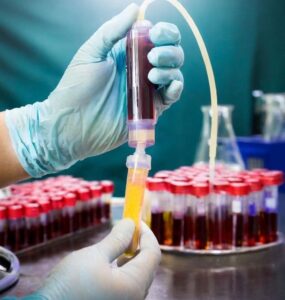
Cord blood, collected from the umbilical cord and placenta after birth, is a rich source of hematopoietic stem cells (HSCs). These remarkable cells possess the capacity to differentiate into all types of blood cells, including red blood cells, white blood cells, and platelets. This unique capability makes them invaluable in the field of regenerative medicine, particularly for blood-related disorders.
Established Applications: Reshaping Hematological and Immunological Health
The primary and most widely accepted use of cord blood HSCs is in hematopoietic stem cell transplantation (HSCT). For decades, these cells have been instrumental in treating a broad spectrum of life-threatening conditions. According to the U.S. National Institutes of Health (NIH) and numerous PubMed-indexed peer-reviewed journals, cord blood transplantation is a recognized and often life-saving treatment for over 80 different diseases. These include, but are not limited to:
- Leukemias and Lymphomas: Cancers affecting the blood and lymphatic system.
- Myelodysplastic Syndromes: Conditions where blood cells fail to mature properly.
- Aplastic Anemia: A rare, serious condition where the body stops producing enough new blood cells.
- Sickle Cell Anemia and Thalassemia: Inherited red blood cell disorders.
- Severe Combined Immunodeficiency (SCID) and Wiskott-Aldrich Syndrome: Genetic disorders affecting the immune system.
- Inherited Metabolic Disorders: Conditions like Hurler syndrome, which affect enzyme function and can be mitigated by healthy stem cells.
Source: U.S. National Institutes of Health (NIH), PubMed-indexed peer-reviewed journals.
Investigational Frontiers: The Promise and the Prudence
Beyond these established uses, the scientific community continues to explore the potential of cord blood stem cells in addressing a wider array of conditions, a field broadly known as regenerative medicine. Research is underway globally to understand their role in neurological disorders (such as cerebral palsy and autism spectrum disorder), autoimmune conditions, and even in recovery from stroke or spinal cord injury. However, it is crucial to understand that many of these applications are considered investigational. This means they are being studied in clinical trials to determine their safety and potential benefits.
Organizations like the U.S. Food and Drug Administration (FDA) and the European Medicines Agency (EMA) provide regulatory oversight, ensuring that new treatments are rigorously evaluated before widespread use. For patients exploring these emerging areas, ClinicalTrials.gov serves as a valuable resource for identifying legitimate ongoing studies and understanding the scientific rigor involved. The ethical framework mandates that any discussion of investigational treatments must clearly distinguish them from approved therapies, always prioritizing patient safety and evidence-based decision-making.
The decision to pursue cord blood stem cell treatment is deeply personal and carries profound implications. Understanding the scientific basis, the regulatory environment, and the distinction between approved and investigational applications is paramount. It ensures that patients approach these advanced therapies with clarity and realistic expectations, rather than assumptions.
The Conventional Approach to Care in Colombia
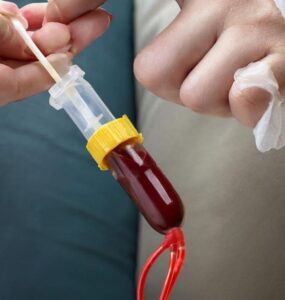
For patients within Colombia, navigating the healthcare landscape for advanced medical conditions involves understanding the national health system and the options available for specialized treatments. Colombia boasts a well-developed healthcare infrastructure, particularly in its larger cities, with a commitment to providing access to a broad range of medical services.
Healthcare Infrastructure and Regulatory Oversight
The Colombian healthcare system is structured to provide comprehensive care, with a network of public and private hospitals, clinics, and health centers. Many medical facilities in major urban centers, including Pereira, are equipped with modern technology and staffed by highly trained medical professionals who receive extensive education both domestically and, frequently, internationally. The system is overseen by the Colombian Ministry of Health, which sets national health policies and standards. Additionally, the National Institute for Food and Drug Surveillance (INVIMA) acts as the primary regulatory body, similar to the FDA, ensuring the safety and quality of medical devices, pharmaceuticals, and biological products used in the country.
Source: Colombian Ministry of Health, INVIMA.
Accessing Advanced Treatment Pathways
For conditions amenable to cord blood stem cell treatment, conventional care pathways in Colombia typically involve diagnosis, followed by standard medical protocols such as chemotherapy, radiation, or surgical interventions, depending on the specific condition. When it comes to advanced therapies like stem cell transplantation, patients often seek specialized centers that have the requisite infrastructure and medical teams focused on these complex procedures. While various treatment options are available nationally, finding a pathway that offers deeply integrated patient support, a serene recovery environment, and a focus on the entire patient journey can require diligent research.
Patients within Colombia considering regenerative medicine often look for facilities that not only meet high clinical standards but also provide an environment conducive to recovery and well-being. The choice of where to seek such care involves weighing clinical quality, logistical ease, and the overall supportive experience, which can vary significantly even within a well-established national healthcare system.
The Pereira, Colombia Advantage: A Holistic Approach to Regenerative Pathways
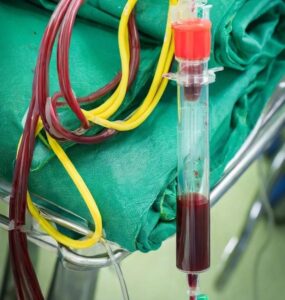
While Colombia offers a robust national healthcare system, the city of Pereira presents a distinct and compelling advantage for individuals seeking advanced regenerative pathways, particularly those involving cord blood stem cells. The appeal of Pereira extends beyond its medical capabilities, encompassing a holistic environment designed to support patient well-being from every angle.
Modern Medical Infrastructure and Qualified Professionals
Pereira, nestled in Colombia’s picturesque Coffee Region, is home to modern medical facilities that meet rigorous international standards. These institutions are equipped with advanced diagnostic and treatment technologies necessary for sophisticated procedures, including those involving stem cell applications. The medical professionals within Pereira’s health sector are highly qualified, many having received training in both national and international contexts, ensuring a depth of understanding in complex medical fields. Their commitment to continuous learning and adherence to best practices is a cornerstone of the care provided.
Seamless Patient Journey: Beyond the Clinic Walls
One of the most significant advantages for patients exploring care in Pereira through the team at Regencord is the emphasis on a seamless, supportive patient journey. We understand that patients often underestimate the profound impact that a stress-reduced environment has on their recovery and overall treatment experience. While medical protocols are paramount, the psychological comfort derived from clear communication, seamless logistical support, and a welcoming cultural setting significantly contributes to patient well-being, often overlooked when navigating complex medical decisions. Our dedicated patient advocacy team acts as a single point of contact, coordinating every aspect of the visit:
- Travel Logistics: From flight arrangements to local transportation.
- Accommodation: Ensuring comfortable and convenient stays.
- Appointment Scheduling: Managing all medical consultations and treatments.
- Communication Support: Providing language assistance to ensure clear understanding between patients and medical teams.
- Post-Treatment Care Coordination: Planning for recovery and follow-up.
This comprehensive support transforms a potentially daunting process into a manageable and reassuring experience, allowing patients to focus solely on their health.
A Naturally Therapeutic Environment
Pereira’s natural setting offers an additional layer of benefit to the patient journey. The mild, spring-like climate year-round, combined with the lush landscapes of the Coffee Region, provides a naturally therapeutic backdrop for recovery. This serene environment is a stark contrast to the often sterile or bustling surroundings of traditional medical centers, fostering a sense of calm and contributing positively to the healing process. Patients often report feeling more relaxed and less stressed, which can be invaluable during periods of intensive medical care.
Value Proposition: Holistic Care and Cost-Effectiveness
The appeal of a destination like Pereira for advanced medical care lies not just in its clinical capabilities but in the holistic value proposition it presents. Beyond access to state-of-the-art facilities and highly trained medical professionals, patients benefit from a naturally therapeutic climate, and a patient-to-provider ratio that allows for more personalized attention, creating a distinct advantage for those seeking comprehensive care. While we do not discuss specific costs, the overall value of receiving focused medical attention within a supportive and recuperative environment in Pereira often proves to be a compelling factor for patients weighing their options. This combination of advanced care, personalized support, and a conducive recovery environment distinguishes Pereira as a destination for those seeking a thoughtful approach to their regenerative pathways.
Adherence to Regulatory Standards
It is important to reiterate that medical facilities in Pereira operate under the strict regulatory framework of the Colombian Ministry of Health and INVIMA. This oversight ensures that all medical procedures, including those involving regenerative medicine, adhere to national and international standards of safety and quality. Patients can have confidence in the integrity of the medical practices, knowing that the regulatory bodies are actively involved in monitoring and maintaining high levels of clinical governance.
Introducing “The Cellular Care Pathway Guide”
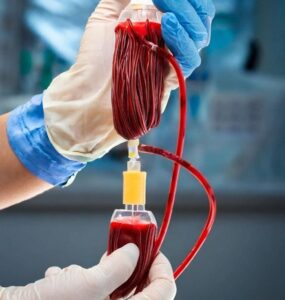
Understanding the intricacies of cord blood stem cell treatment and navigating the journey to receive care can be complex. To empower you with clarity and confidence, the Regencord team has developed “The Cellular Care Pathway Guide.” This innovative resource is designed to demystify the process, offering a structured approach to your decision-making and preparation.
What The Cellular Care Pathway Guide Offers:
- Clear Explanations: Breakdowns of medical terminology and concepts related to cord blood stem cells and regenerative medicine.
- Step-by-Step Journey Overview: A detailed map of the patient experience, from initial inquiry to post-treatment follow-up.
- Key Questions to Ask: Guidance on formulating essential questions for medical professionals during consultations.
- Logistical Preparation Checklist: Practical considerations for travel, accommodation, and documentation when seeking care.
- Information Gathering Tools: Resources to help you compile your medical history effectively for comprehensive review.
Our goal with “The Cellular Care Pathway Guide” is to transform potential confusion into clear understanding, ensuring you feel prepared and supported at every stage of your exploration into advanced regenerative pathways. This guide is a testament to our commitment to patient empowerment through education.
Our Regenerative Philosophy & Approach
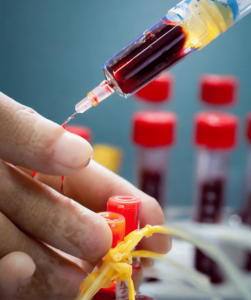
The team at Regencord in Pereira, Colombia, operates with a clear and consistent philosophy: to empower patients through education, support, and access to ethically guided regenerative medicine pathways. Our approach is founded on principles of transparency, scientific rigor, and deep empathy for the patient journey.
Patient-Centric Advocacy
We understand that each patient’s situation is unique, characterized by specific health needs, personal circumstances, and hopes. Our role is that of a patient advocate and facilitator. We do not offer direct clinical treatment; rather, we connect individuals with highly qualified medical professionals and facilities that focus on regenerative medicine in Pereira. This distinction is crucial: our value lies in streamlining the access to care and providing comprehensive support, ensuring that patients can focus on their health without the burden of complex logistics or information overload.
Commitment to Ethical Practice and Scientific Understanding
Our philosophy is deeply rooted in adherence to ethical guidelines and current scientific understanding. We emphasize the importance of distinguishing between established applications of cord blood stem cells and those that are still under investigational study. All information we provide is sourced from recognized authoritative bodies like the NIH, WHO, and INVIMA, ensuring its reliability and integrity. Our aim is to foster informed decision-making, where patients fully understand the potential benefits and considerations of any recommended pathway.
Comprehensive Support for a Holistic Experience
The Regencord approach extends beyond merely facilitating appointments. We recognize that true healing encompasses physical, emotional, and logistical well-being. Our team is dedicated to supporting the holistic patient experience by:
- Facilitating Detailed Case Reviews: Ensuring that medical professionals have all necessary information for a thorough assessment.
- Providing Transparent Information: Clarifying treatment processes, potential considerations, and what to expect at every step.
- Offering Logistical and Language Support: Minimizing stress associated with travel, accommodation, and communication.
- Creating a Welcoming Environment: Leveraging Pereira’s natural beauty and the local community’s hospitality to aid recovery.
Our philosophy is to guide, support, and empower, ensuring that every patient engaging with the team at Regencord feels valued, understood, and confident in their path forward.
Overcoming Common Hesitations: Why Seeking Clarity is a Strategic Advantage
It’s natural to have questions and concerns when considering advanced medical treatments, especially when exploring options that involve travel. Many patients share common hesitations before seeking care internationally or for conditions requiring regenerative approaches. Addressing these directly, with empathy and verifiable facts, is crucial for building trust and enabling informed decisions.
Hesitation 1: “Is cord blood stem cell treatment legitimate or just experimental?”
The field of regenerative medicine, including cord blood stem cell treatment, can indeed be complex, with a spectrum of applications ranging from well-established to investigational. It is a valid concern to question the legitimacy. The truth is that the use of hematopoietic stem cells from cord blood for specific blood disorders, such as leukemias, lymphomas, and certain anemias, is a well-established and approved medical practice, endorsed by major regulatory bodies and extensively documented in scientific literature (as highlighted by the NIH and numerous PubMed studies). For these conditions, cord blood transplantation has been a life-changing treatment for many years. However, it is equally true that many other applications of stem cells are still under rigorous investigation. For these emerging uses, treatment typically occurs within controlled clinical trials, monitored by authorities like the FDA or INVIMA, to gather robust data on safety and potential benefits. Our focus is on transparency: clearly differentiating between approved treatments and those within the research framework, ensuring patients understand the scientific basis and regulatory status of any pathway being considered.
Hesitation 2: “Is receiving medical care in Colombia (specifically Pereira) safe, high-quality, or legitimate, especially for advanced treatments?”
Concerns about the quality and safety of medical care in a different country are entirely understandable. However, reframing this perspective by focusing on verifiable facts reveals a different picture. Colombia has steadily built a reputation for its modern healthcare infrastructure and commitment to medical excellence. Cities like Pereira host state-of-the-art medical facilities equipped with advanced technology. The nation’s healthcare system is rigorously overseen by entities such as the Colombian Ministry of Health and INVIMA, which enforce strict standards for medical practice, facility accreditation, and product safety. Medical professionals in Colombia undergo extensive training, often with international experience, ensuring they are well-versed in contemporary medical practices. Quality medical care is not exclusive to specific geographic regions; it is a product of robust regulation, continuous investment in technology, and highly trained personnel—all of which are present in leading Colombian medical centers. Our role is to connect you with facilities that exemplify these high standards.
Hesitation 3: “This sounds too complicated and overwhelming. I wouldn’t know where to start with international travel for medical care.”
The prospect of coordinating medical care with international travel can certainly seem daunting, leading to feelings of overwhelm. The logistical complexities—travel arrangements, accommodation, medical appointments, language barriers, and follow-up care—can deter many from exploring potentially beneficial options. This is precisely where the Regencord team provides a strategic advantage. We address this logistical anxiety directly by outlining and managing a clear, step-by-step patient journey. From your very first inquiry, our patient advocacy team provides comprehensive support: facilitating your confidential case review, coordinating all travel and lodging, scheduling your consultations, and ensuring seamless communication with medical professionals. We transform the perception of a complex international process into a manageable, supported pathway. Our commitment is to handle the intricacies, allowing you to conserve your energy and focus entirely on your health and recovery, knowing you have a dedicated team guiding you at every turn.
Hesitation 4: “Will I understand the medical information, and will my concerns be truly heard if there’s a language barrier?”
Effective communication is foundational to effective medical care, and the fear of a language barrier is a significant concern for many patients. The anxiety that medical information might be misunderstood, or that your personal concerns and questions might not be fully conveyed, is legitimate. At Regencord, we prioritize clear, compassionate communication as a core component of our patient advocacy. We provide dedicated language support, including professional translation and interpretation services, to ensure that all medical information is thoroughly explained in your native language. Furthermore, our patient advocates are skilled in bridging cultural nuances, ensuring that not only are words translated, but also that your questions are genuinely heard and understood by the medical team. This commitment fosters a sense of understanding and trust, ensuring that you are an active and informed participant in every decision about your care, regardless of the linguistic or cultural distance.
Glossary of Key Terms
- Cord Blood: Blood collected from the umbilical cord and placenta after birth, rich in hematopoietic stem cells.
- Hematopoietic Stem Cells (HSCs): Immature cells found in cord blood and bone marrow that can develop into all types of blood cells (red, white, platelets).
- Regenerative Medicine: A broad field focused on developing therapies to repair, replace, or regenerate damaged cells, tissues, or organs.
- Immune Reconstitution: The process of rebuilding a healthy immune system, often after it has been suppressed by disease or treatment.
- Transplantation: A medical procedure in which healthy cells (e.g., stem cells) are transferred into a patient’s body to treat a disease.
- INVIMA: Colombia’s National Institute for Food and Drug Surveillance, responsible for regulating health products.
- Patient Advocacy: Services focused on guiding, supporting, and empowering patients through complex medical journeys and decisions.
Frequently Asked Questions (FAQ)
Here are answers to some common questions patients often have when considering cord blood stem cell treatment and exploring options through the team at Regencord:
What are cord blood stem cells and how are they used in treatment?
Cord blood stem cells are a type of hematopoietic stem cell found in the umbilical cord and placenta after birth. These cells have the unique ability to develop into various blood cell types, including red blood cells, white blood cells, and platelets. They are primarily used in transplantation to reconstitute a patient’s immune system, often after chemotherapy or radiation, for conditions like leukemias, lymphomas, and certain genetic disorders. While their approved uses are specific, research into broader regenerative medicine applications is ongoing, monitored carefully by regulatory bodies like the NIH and FDA.
What conditions are typically addressed with cord blood stem cell treatment?
Cord blood stem cells are well-established for treating a range of conditions, primarily blood and immune system disorders. These include various forms of leukemia, lymphoma, myelodysplastic syndromes, sickle cell anemia, thalassemia, and certain inherited metabolic disorders and immune deficiencies. For conditions beyond these established uses, such as neurological or autoimmune disorders, treatments using cord blood stem cells are generally considered investigational and are often conducted within carefully designed clinical trials, as detailed on platforms like ClinicalTrials.gov.
Are there risks involved with cord blood stem cell treatment?
As with any medical procedure, cord blood stem cell treatment carries potential considerations. These can vary depending on the specific condition being treated, the patient’s overall health, and the source of the cells. Potential aspects include graft-versus-host disease (GVHD), infection, or treatment-related side effects. The medical team will provide a thorough assessment of potential considerations and discuss these comprehensively during a confidential case review, ensuring you are fully informed about the specific approach and what to anticipate. Adherence to strict medical protocols, as guided by organizations like the NIH and WHO, helps manage these aspects.
How do I know if cord blood stem cell treatment is suitable for my specific situation?
Determining suitability for cord blood stem cell treatment requires a thorough medical evaluation by qualified professionals. This assessment typically involves reviewing your medical history, current condition, previous treatments, and specific diagnostic findings. It’s crucial to understand that such treatments are not universally applicable and are guided by specific clinical criteria. The team at Regencord facilitates connecting you with medical professionals who can conduct this in-depth review and provide clarity on whether regenerative pathways, including those involving cord blood stem cells, align with your health needs and the current scientific understanding.
What is the process of seeking care through the team at Regencord in Pereira, Colombia?
The process of exploring care through the team at Regencord is designed to be clear and supportive. It typically begins with a confidential case review, where you share your medical records and questions. Our patient advocacy team then facilitates a connection with qualified medical professionals who can assess your suitability for available regenerative pathways. If a pathway is identified, we provide comprehensive support for logistics, including travel, accommodation, and coordination of medical appointments, ensuring a streamlined and comfortable journey from your initial inquiry to your return home. Our aim is to empower you with information and support every step of the way.
Discover if you are a candidate for the regenerative medicine pathways available through the team at Regencord in Pereira, Colombia. Contact us for a confidential case review.
